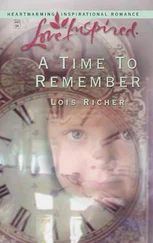Alexander Todd - A Time to Remember
Здесь есть возможность читать онлайн «Alexander Todd - A Time to Remember» весь текст электронной книги совершенно бесплатно (целиком полную версию без сокращений). В некоторых случаях можно слушать аудио, скачать через торрент в формате fb2 и присутствует краткое содержание. Город: Cambridge, Год выпуска: 1983, ISBN: 1983, Издательство: Cambridge University Press, Жанр: Химия, Биографии и Мемуары, на английском языке. Описание произведения, (предисловие) а так же отзывы посетителей доступны на портале библиотеки ЛибКат.
- Название:A Time to Remember
- Автор:
- Издательство:Cambridge University Press
- Жанр:
- Год:1983
- Город:Cambridge
- ISBN:0 521 25593 7
- Рейтинг книги:3 / 5. Голосов: 1
-
Избранное:Добавить в избранное
- Отзывы:
-
Ваша оценка:
- 60
- 1
- 2
- 3
- 4
- 5
A Time to Remember: краткое содержание, описание и аннотация
Предлагаем к чтению аннотацию, описание, краткое содержание или предисловие (зависит от того, что написал сам автор книги «A Time to Remember»). Если вы не нашли необходимую информацию о книге — напишите в комментариях, мы постараемся отыскать её.
A Time to Remember — читать онлайн бесплатно полную книгу (весь текст) целиком
Ниже представлен текст книги, разбитый по страницам. Система сохранения места последней прочитанной страницы, позволяет с удобством читать онлайн бесплатно книгу «A Time to Remember», без необходимости каждый раз заново искать на чём Вы остановились. Поставьте закладку, и сможете в любой момент перейти на страницу, на которой закончили чтение.
Интервал:
Закладка:
In December 1956 I had a note from John Colville (universally known as Jock), Sir Winston Churchill's private secretary, asking me to lunch with him at his office in London.
At this meeting he told me that he, Sir Winston and Lord Cherwell, had often discussed the problem of getting new technology into industry and the possibility of creating an institution like M.I.T. The same idea had been put forward to Sir Winston via Colville by Carl Gilbert of Boston, President of the Gillette Corporation. I was asked what I thought about it, and I gave the views I have just outlined. I pointed out that it was the people in an institution like M.I.T. that mattered, and that one of our troubles here was that the universities and colleges with special interests in technology, by and large, lacked the prestige to attract people of the highest quality either as teachers or students. In this country, it was quite clear that the prestige of Oxford and Cambridge ensured that the best brains in the country tended to gravitate there; this led me to suggest that one might do worse than take advantage of the collegiate system in Cambridge, where there was already a large academic engineering school; with money from industry, one could found a new college which would have a majority of its students in science and technology, would help develop strong research schools in the various technological studies, and in various other ways forge strong links with industry. After some further discussions, which also involved Mr. John Oriel of Shell Ltd and Sir John Cockcroft whom I brought in, it was agreed that the scheme should be closely examined. During the first part of 1957 I introduced Jock Colville to Professor B. W. Downs, Master of Christ's College and, at the time, Vice-Chancellor of the University of Cambridge, and to Lord Adrian, then Master of Trinity and due to succeed Downs as Vice-Chancellor in October 1957. Although not himself a scientist, Downs was an enthusiastic supporter of the idea, and he was mainly responsible for persuading the university formally to accept the idea of a new Churchill College operating on the above lines and forming a national memorial to Sir Winston. There was, of course, some opposition from diehards in the university, who viewed anything scientific with deep distrust, but this proved rather weak when put to the test and, after the usual series of academic manoeuvres, the outline scheme for the proposed new college was accepted by the Council of the Senate in November 1957. Thereupon began a lengthy series of exploratory talks with industrial leaders in which Jock Colville and I were much involved. Our idea was that we should be privately assured that industry was likely to contribute £3 1/2 million before we formally launched an appeal. In this we were greatly helped by Viscount Knollys of Vickers Ltd, who agreed not only to help in the exploratory work, but to become chairman of an Appeal Committee for the project. A Trust Deed was now drawn up and executed. In it the following were named as Trustees: Sir Winston Churchill, Lord Tedder, Lord Adrian, Viscount Chandos, Sir John Cockcroft, Professor Downs, Lord Fleck, Lord Godber, Sir Alexander Todd, Lord Weeks. Later Noel Annan, Sir William Carron, Viscount Knollys and John Colville joined as additional Trustees.
Once we reached the stage of approaching potential donors informally, I found myself saddled with the job of keeping track of amounts promised, and dealing with the local administrative problems such as opening bank accounts, etc.; my new laboratory superintendent, Ron Purchase, took on the job of acting as a Cambridge secretary to the Trust. In this work he continued until he left to return to Australia at the end of 1958. He did a first-class job, not only for the Trust but for me in the laboratory, and I was sorry to see him go; but I fear Purchase was an incurably restless individual who had to be always on the move. I have lost touch with him in recent years, but I used to hear from him occasionally for about ten years after we parted, and he seemed every time to be in different jobs located widely apart. He was, for a time, back in this country at Harwell, then later in Nauru in the Pacific - very much a rolling stone. I was doubtless lucky to have him when Ralph Gilson left Cambridge, but I was even luckier when I had to find a replacement. When I went to Manchester in 1938 Professor (later Sir) Ian Heilbron took with him to London his laboratory steward, F. G. Consterdine, a really first-class man under whom, incidentally, Ralph Gilson had been trained. Consterdine remained attached to Heilbron when the latter left Imperial College and went to direct the new Brewing Industry Research Foundation. When Heilbron died suddenly in 1959, Consterdine did not find the new regime to his liking, and, hearing that I was looking for someone like him to replace Purchase, he agreed to come to Cambridge. He took over without fuss or bother and ran my department with quiet efficiency until his retirement some years later; the wheel indeed had come effectively full circle.
It is not my intention to give a detailed history of the development of Churchill College, of which I later had the honour to be made an Honorary Fellow, but I treasure many memories of those early days when the idea was first elaborated, the money collected and the building and staffing of the new college was undertaken. During the period between the signing of the Trust Deed and the formal opening of the college the Trustees used to meet regularly at Sir Winston's house in Hyde Park Gate, London, S.W. The meetings were great fun, although we did also discharge a lot of business. The hour was always, as I recall, five o'clock in the afternoon, and each of us was provided with an enormous cigar and a very generous portion of brandy, ample replacements of both being scattered around the table. We always arranged that Oliver Chandos should sit immediately to the right of Sir Winston at the head of the table. This was important, because Chandos had by far the loudest voice in the room, and Sir Winston had a way of removing his hearing aid when the meeting started and was liable, in Chandos' absence, to become incommunicado. Nevertheless, he used to enliven the meetings from time to time by turning on a stream of epigrammatic remarks on features of the day's business which took his fancy. And many of his comments were not only acute, but clearly showed that he took the whole college project very seriously indeed; he was no sleeping partner despite his advanced years.
In the middle of one of our meetings I remember Sir Winston fumbled in his coat pocket and produced a letter which he opened and then announced 'I have a letter here from a woman - a very interesting letter. She says we ought to have women in the college. Seems quite a good idea - why don't we have women in the college?'
Whereat Chandos roared in best parade ground style 'If you do that, Winston, you might have to give back some of the money we've already collected.'
'Ah,' said the great man, 'that's different,' put the letter back in his pocket and replenished his glass.
On another occasion, when plans for the college buildings were being considered the question of a chapel was raised. Because we hoped the membership would be very international some of us felt that a chapel specifically associated with one religion would not be appropriate. The matter was speedily settled by Sir Winston who said 'Chapel? Why should we have a chapel - Cambridge is full of churches already.' But it didn't quite work out like that. Someone must have leaked this discussion in Cambridge, for, very soon thereafter, we received a small cheque - I think it was for £5 or £10 - as a donation for the chapel. It was felt that to return the cheque would probably lead to trouble, so we decided that, if enough money to build a chapel came to us earmarked for this purpose, then we would include one, subject to the proviso that it should be so designed that any member of the college would feel able to use it for private devotion, no matter what his particular religious beliefs. Such a chapel was in due course included in the final plans.
Читать дальшеИнтервал:
Закладка:
Похожие книги на «A Time to Remember»
Представляем Вашему вниманию похожие книги на «A Time to Remember» списком для выбора. Мы отобрали схожую по названию и смыслу литературу в надежде предоставить читателям больше вариантов отыскать новые, интересные, ещё непрочитанные произведения.
Обсуждение, отзывы о книге «A Time to Remember» и просто собственные мнения читателей. Оставьте ваши комментарии, напишите, что Вы думаете о произведении, его смысле или главных героях. Укажите что конкретно понравилось, а что нет, и почему Вы так считаете.










